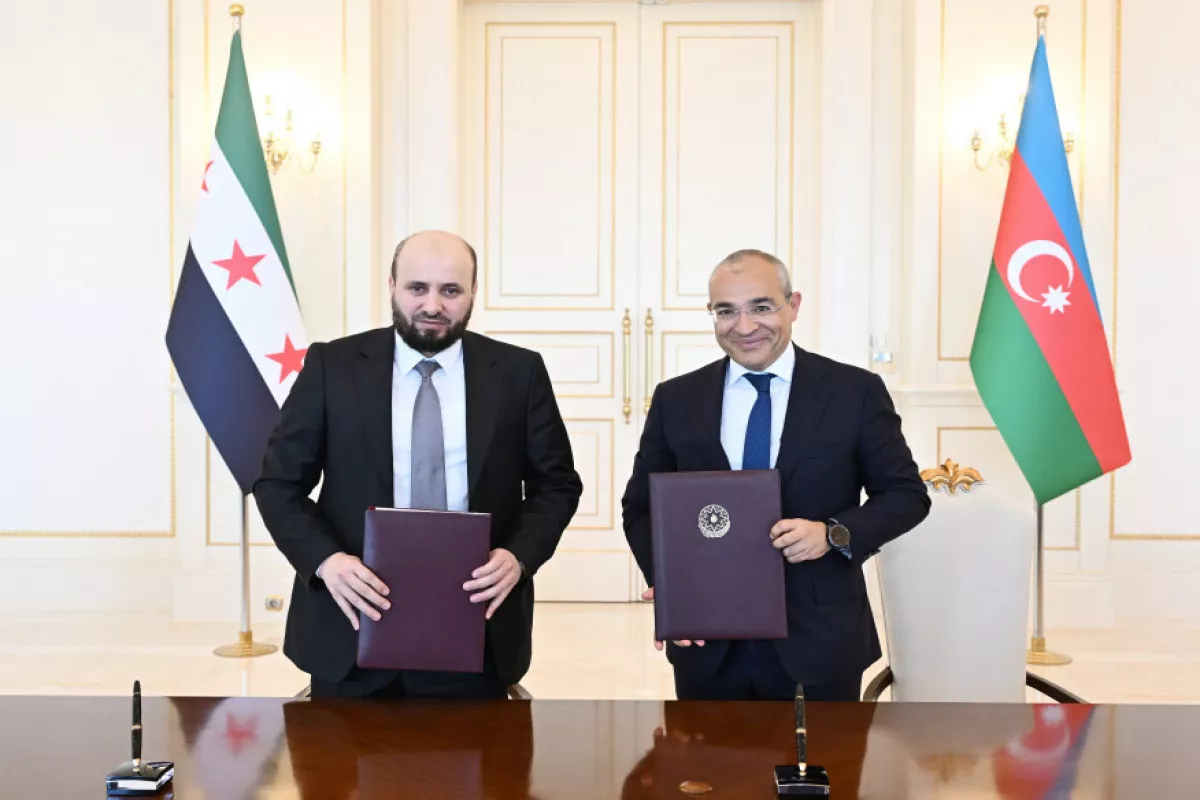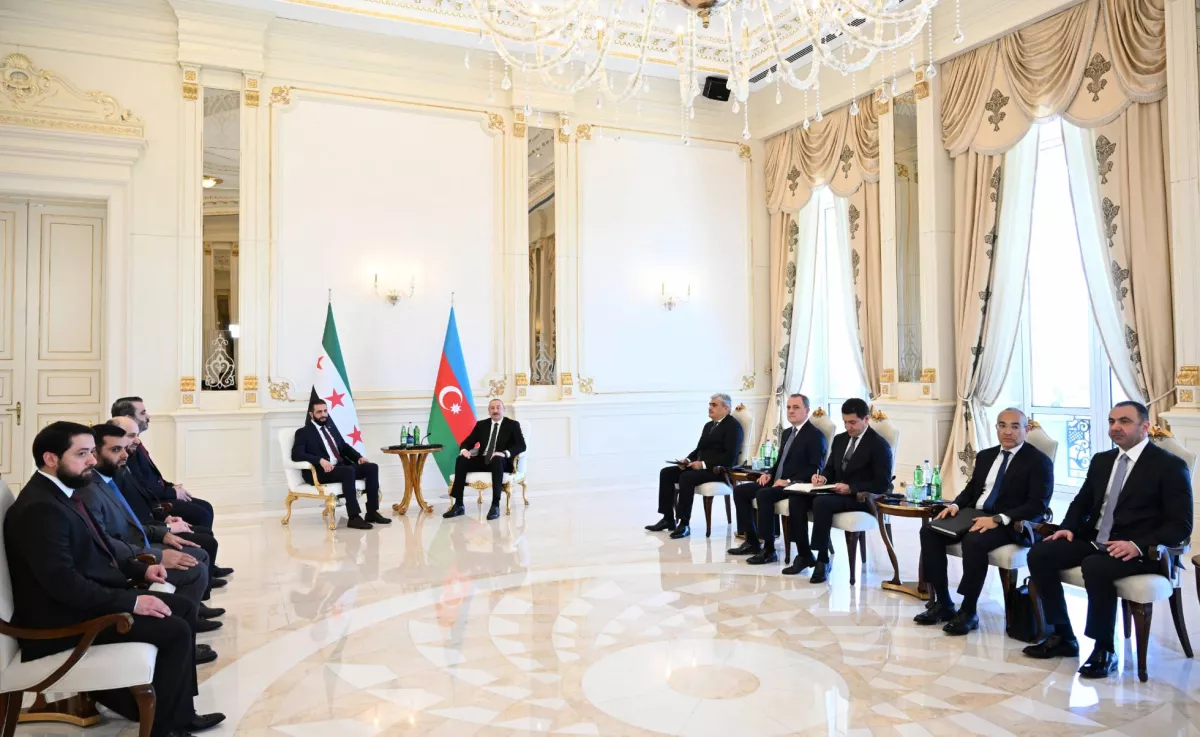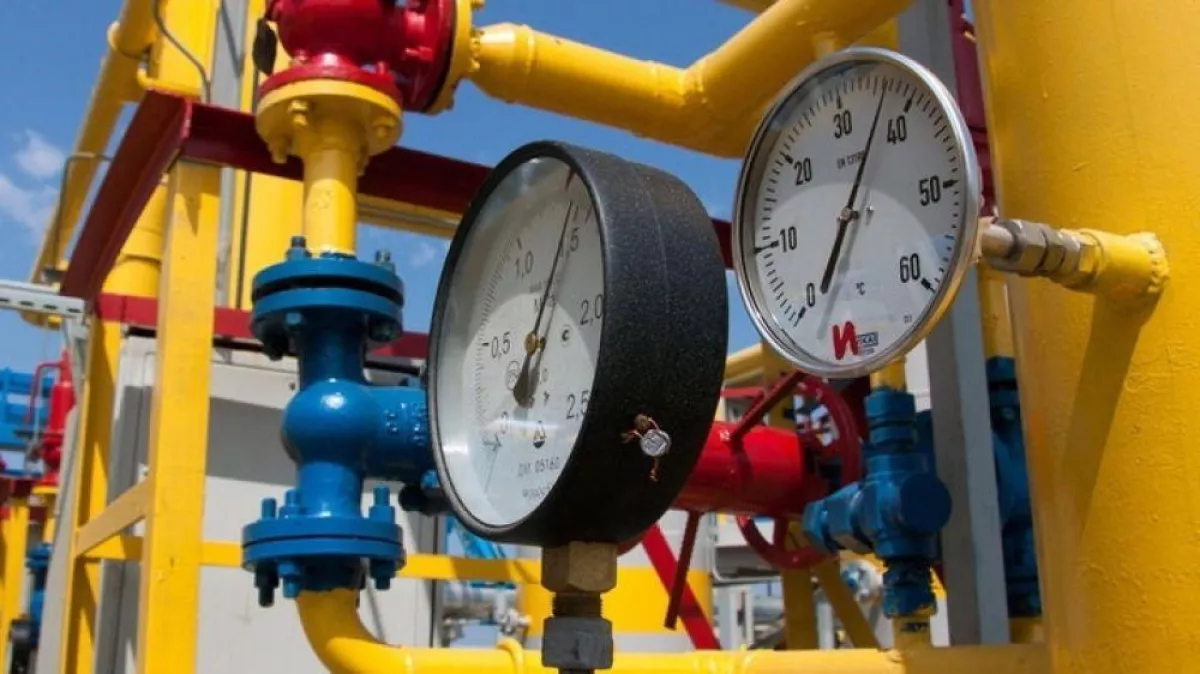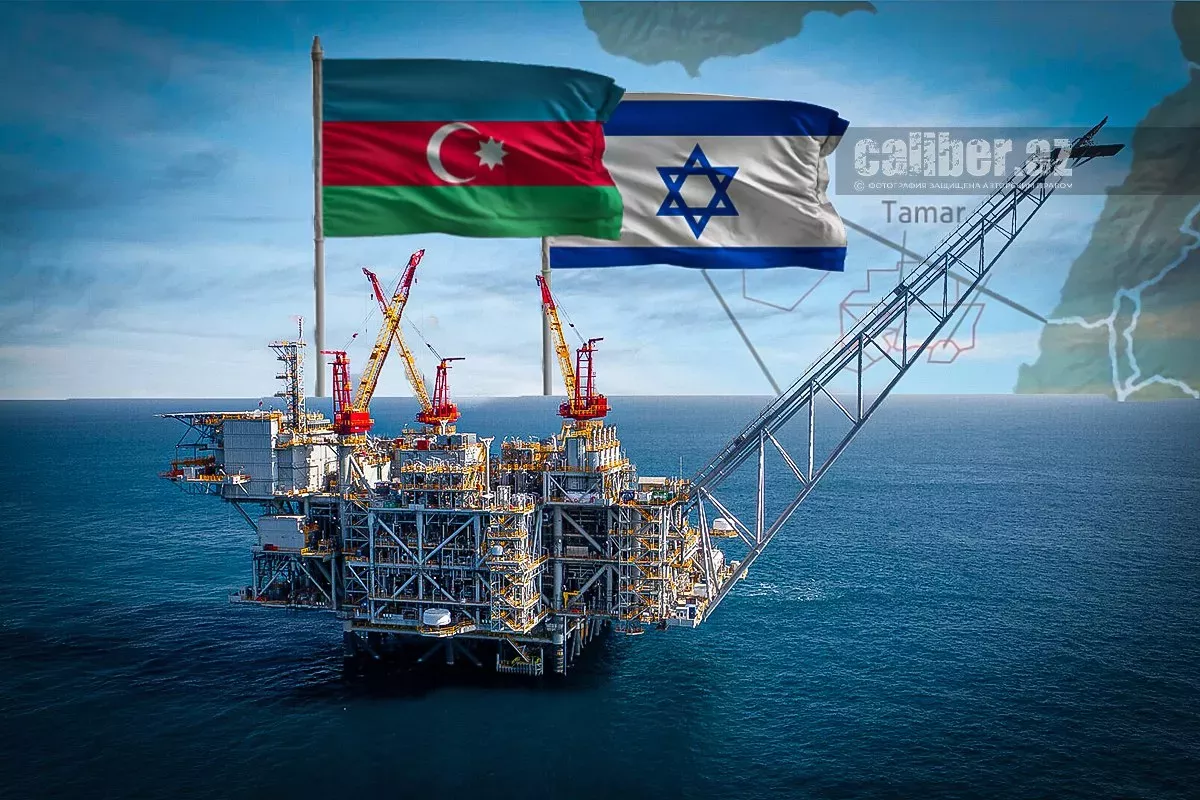Energy evolution: Azerbaijan links Israel, Syria and Türkiye Article by Globes
The Israeli newspaper Globes has published a revealing article highlighting Azerbaijan’s growing influence in the regional energy landscape, with a special focus on its expanding cooperation with Israel, Syria, and Türkiye. The piece underscores Baku’s strategic ambitions—not only as a major energy exporter, but also as a potential geopolitical bridge in a region marked by shifting alliances and long-standing conflicts. From fuelling Syria’s post-war recovery to acquiring stakes in Israeli gas fields, Azerbaijan is positioning itself as a central player in reshaping the Middle East’s energy map. Caliber.Az presents the article with minor edits.
"Azerbaijan has positioned itself as a major regional player by branding itself as the focus of normalisation talks between Israel and Syria. But the country is not stopping there. Azerbaijan's Minister of Economy and national oil and gas company SOCAR chairman Mikayil Jabbarov, recently signed an agreement with Syria's Minister of Energy, Mohammed al-Bashir, to supply natural gas to the country as it strives to rebuild and repair the damage of the civil war. The agreement guarantees that gas will be exported to northern Syria, as early as next month.

According to UN estimates, the 14 years of civil war in Syria have resulted in damage of $250-400 billion, while over half of the population is still displaced, and 90% live below the poverty line. A particularly significant challenge is to provide electricity to citizens. Qatar has pledged to invest $7 billion in building power plants, but fuel is needed. The Qataris could supply LNG (liquefied natural gas), but it is much more expensive than regular pipeline supplies.
The Azerbaijanis are interested in exporting natural gas to Syria via Türkiye, as is routine in supplying Europe. At the same time, Azerbaijan exported to Türkiye itself about 4.77 billion cubic meters (BCM) of natural gas in January-May of this year, up 1.9% year-on-year.
The Israel connection
Exporting Azerbaijani energy to Middle Eastern countries via Israel is not new at all, and its roots lie here. Israel imports oil from Azerbaijan via the BTC (Baku-Tbilisi-Ceyhan) pipeline, which is then transported by tanker to Israel. According to "Al-Monitor," Azerbaijan provides about 40-60% of Israel's consumption.
"The agreement signed with SOCAR on the supply of natural gas to Syria is a step towards energy independence and building a strategic cooperation that will serve our citizens," said Syria's Minister of Energy. Azerbaijan's President Ilham Aliyev has already expressed his desire to assist Syria "in all areas."

This is also very beneficial to it economically, since according to official data, more than 90% of Azerbaijan's total exports in 2024 were oil and gas. In the field of natural gas alone, there was a 5.8% increase in exports to 25.2 BCM. The destinations for the natural gas were Europe (12.9 BCM), Türkiye (9.9 BCM) and Georgia (2.4 BCM), and now Syria is seen as an opportunity for a large-scale and long-term customer.
Connecting existing infrastructures
The Azerbaijani-Syrian agreement includes roughly 2 BCM annually to be conveyed via the existing infrastructure of the Turkish national energy company BOTAS, along the Kilis-Aleppo pipeline. Only 1.2 BCM will begin to flow to the Aleppo and Homs region in August, due to the limitations of the existing infrastructure.
In March, the Azerbaijani national company signed the work plan for gas exploration in Block I of Israel's northwest exclusive economic zone. The Azerbaijanis accepted the tender in a move led by NewMed (TASE: NWMD) CEO Yossi Abu even before the war. SOCAR sees Israel's current pipeline infrastructure as one that could connect to Türkiye via Syria and create a circle.

Israel is currently connected to Jordan and from there to Syria and Lebanon via the Arab Gas Pipeline. The initial Azerbaijani vision included expanding the Arab Gas Pipeline, which currently reaches Homs, and from there branches off to Tripoli in Lebanon and Banias in western Syria. The distance from Homs to Türkiye is about 150 kilometres, and the Azerbaijanis would have been happy to connect to its gas pipeline, with an estimated investment of $200 million.
On the way to realizing the vision
Another major step in Israel, also revealed by "Globes", occurred last month with the completion of SOCAR's acquisition of 10% of the Tamar reservoir from Aaron Frenkel, in a deal worth an estimated $1.25 billion. All this reflects Azerbaijan's grandiose ambitions.

The growing regional consolidation in oil and gas serves these ambitions, and if in time it manages to reach a situation where all regional gas infrastructures are connected to each other through Syria, all parties will benefit, and Azerbaijan will benefit most of all," the article reads.
By Aghakazim Guliyev








